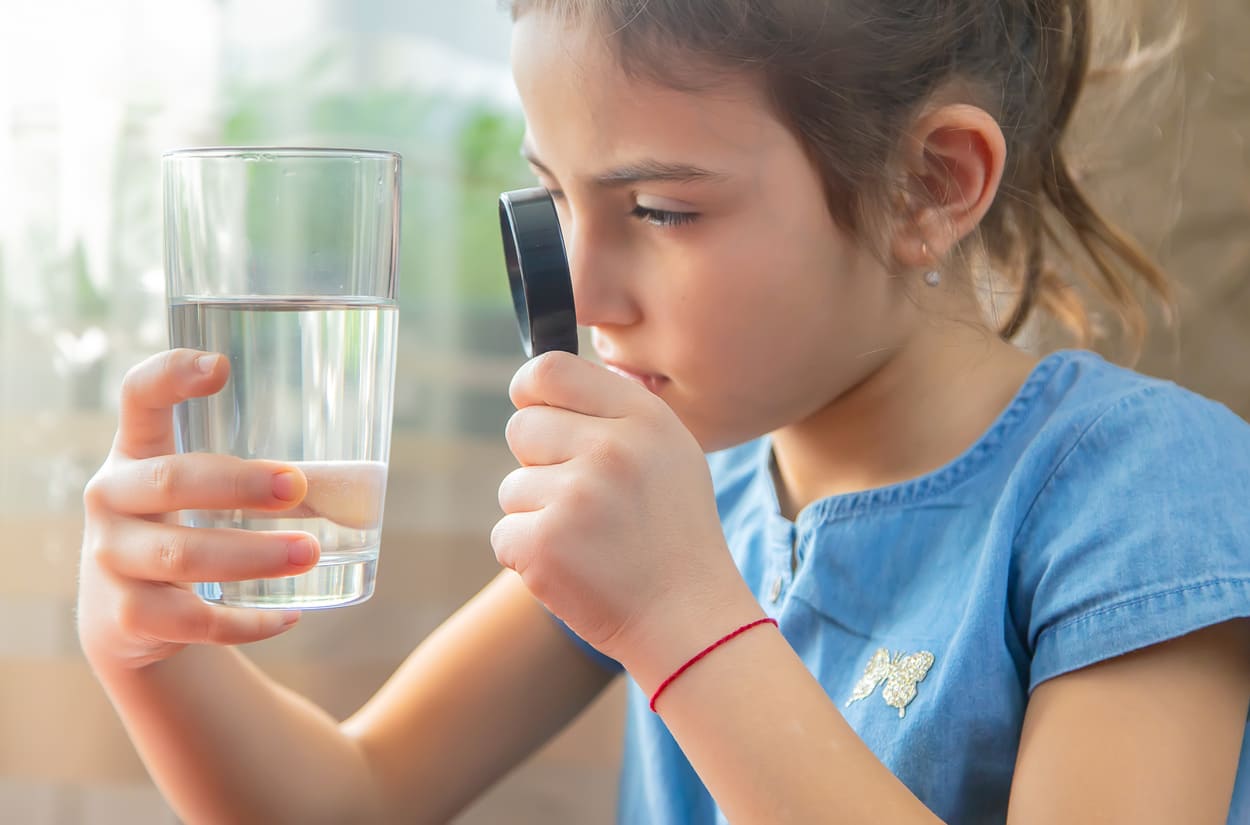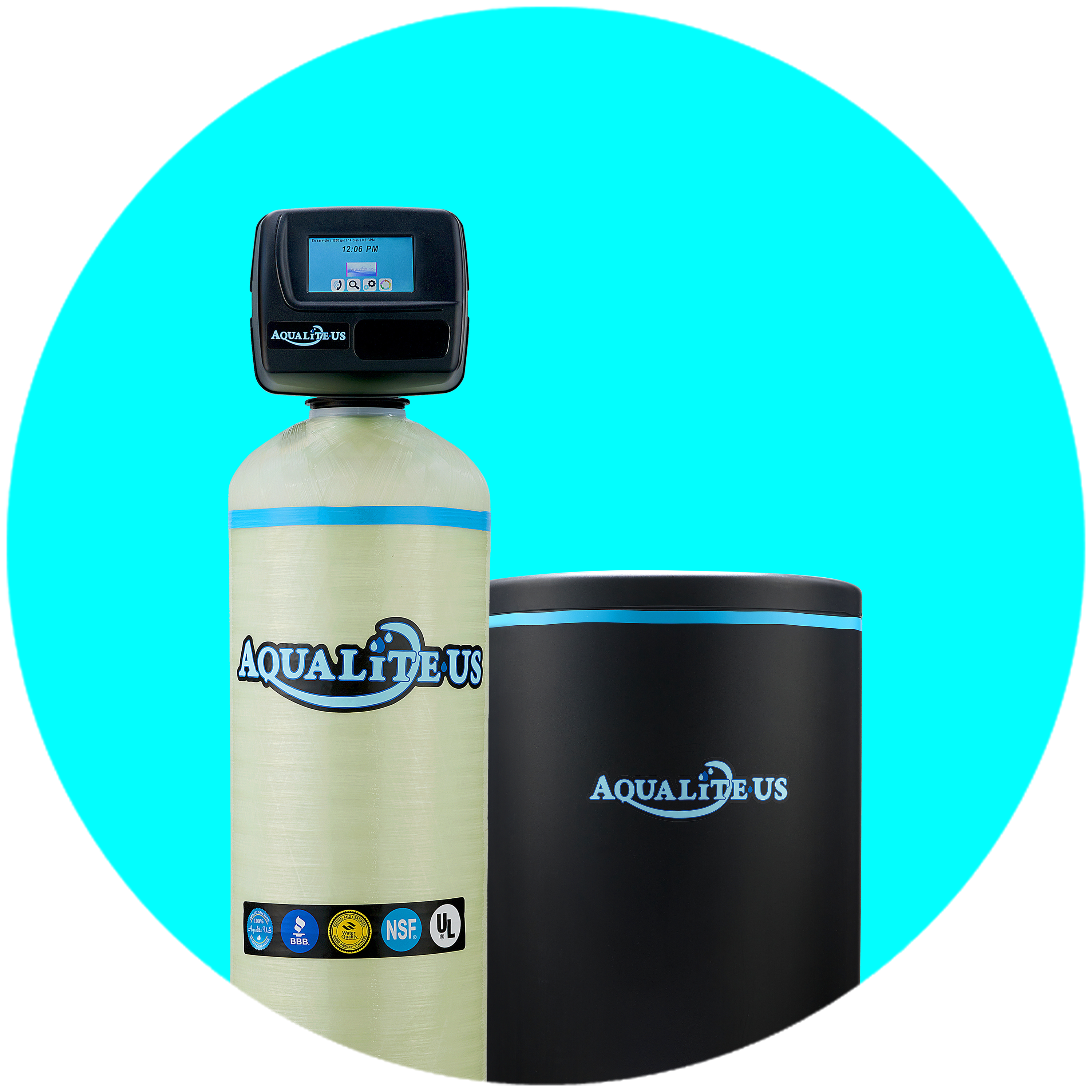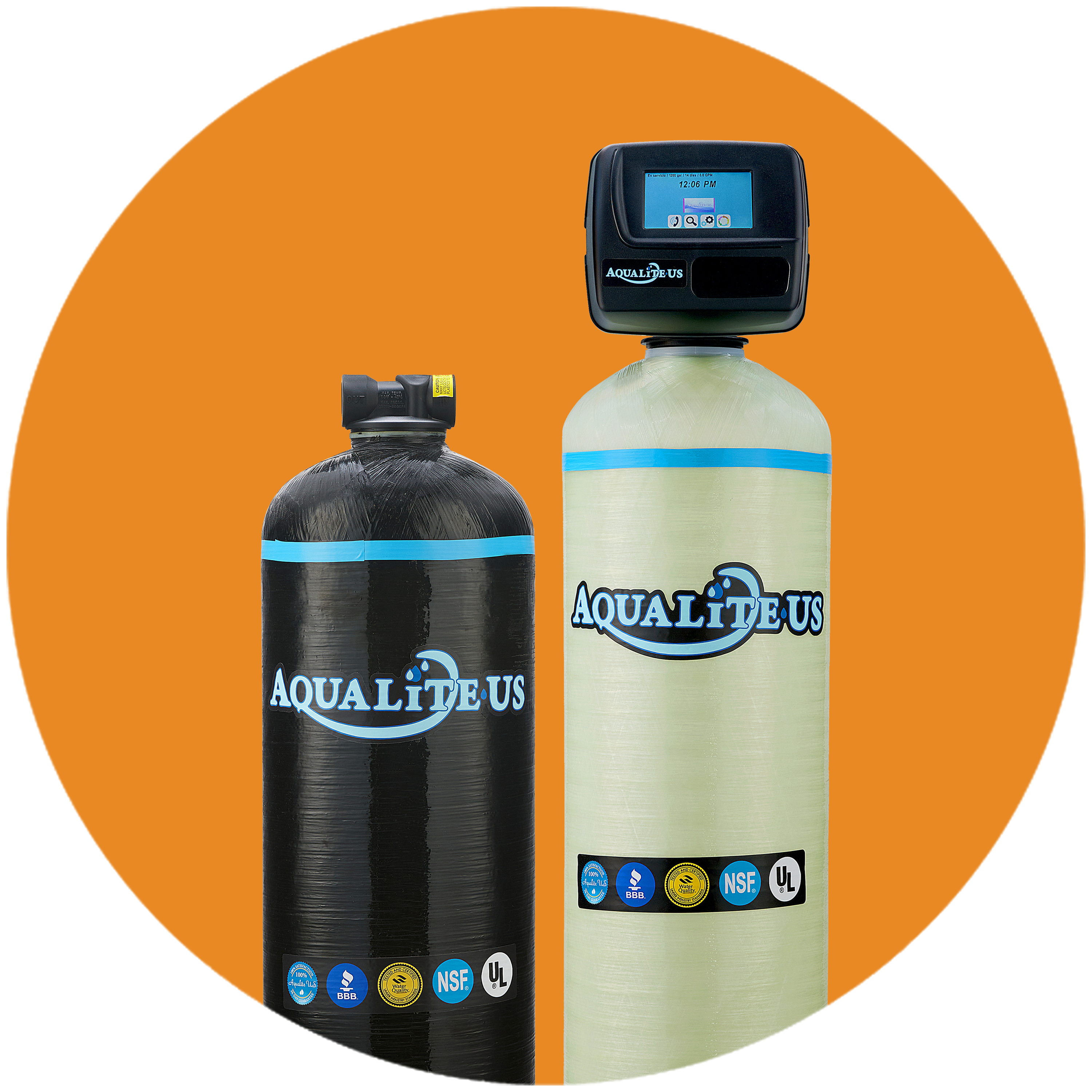Learn how you and your family can benefit from a whole-home water softener system.
You have probably heard people talk about “hard water” and “soft water,” but do you know what they are and how they can affect your home and family? Learn more about the differences between hard and soft water and why a water softener could be a worthwhile purchase for your home.
Soft Water Facts
Many states have what is considered hard water. The main characteristic of hard water is the presence of high levels of calcium and magnesium.
Soft water is characterized by low concentrations of ions—especially calcium and magnesium. Water is naturally soft; it does not contain any minerals. The minerals get added as the water travels through the earth, mineral deposits, and rock. Areas where chalk, limestone, and marble are abundant, tend to have the hardest water. Soft water is found where there are impervious, hard, calcium-poor rocks.
You can soften the water in your home with a home water softener system.
Top 6 Benefits of Having Soft Water
The term “hard” came from the minerals in the water prevent soap from lathering, thereby making it “hard” to wash anything. Soft water, on the other hand, lathers well and cleans better. Some of the benefits of soft water include:
#1 Cleaner clothes:
Your clothes will come out of the washer without mineral stains. Also, hard water can shorten the life of textiles; soft water helps your clothes last longer.
#2 Better home water pressure:
Since there are no minerals, such as calcium and magnesium—which can build up in pipes—water can flow freely.
#3 Saves energy:
When minerals build up in your pipes, they force your water heater to work harder and consume more power. Of course, this costs you more money. Plus, hard water can shorten the length of your water-using appliances, such as the dishwasher, washing machine, and even your coffee maker!
#4 Saves money:
Since you will need less soap to get a lather, you will save money on soap and detergent. Studies have shown you can use 50% less detergent in washing machines and save energy by washing clothes in cold water.
#5 More radiant skin:
Soft water is gentler on the body, making your skin smoother and hair silkier.
#6 Better-tasting water:
One of the reasons people get a water softener is because their hard water has an off-taste. Better tasting water is ideal for drinking and food preparation.
Top 4 Myths About Soft Water
There are myths about soft water that prevent some people from getting a home water softener. Here, we will debunk those myths:
#1 Soft water leaves a film on your skin:
The opposite is true: hard water inhibits lathering, and the minerals leave soap scum in your sink and bathtub and residue on your skin. It also dries skin and hair.
#2 Water softeners add dangerous amounts of salt to your water:
While a softener adds some sodium to the process, it is necessary for the ion exchange process that reduces calcium and magnesium. You will not taste salt in your water, and it will not negatively impact your health.
#3 Water softeners reduce healthy minerals:
A water softener does take out calcium and magnesium, which causes hard water. However, the minerals found in water are inorganic materials, which do not provide the benefits of organic materials. Drinking milk and eating calcium-rich foods are better ways to get your calcium.
#4 Water softeners are too expensive:
Once you consider the cost savings, you will find a water softener that will save you money. You will use less soap and energy, you will not have frequent plumbing bills, and your appliances will not need to be replaced as often.
How Does a Water Softener Work?
Water filters reduce impurities from your water using a tank and multiple filters, many with activated carbon, a layer of ion exchange resin, and a layer of unique gravel that serves as ion exchange to reduce calcium and magnesium. The carbon is the filter, and the resin is the softener. The water softener has a backflush tank that collects the hard minerals and occasionally flushes them down the drain. For instance, the Puronics® Reverse Osmosis under sink systems has multiple filters to provide on-demand soft, clean water to your faucet. These systems are affordable options and do not use electricity to work, making them more energy-efficient.
Get Your Water Tested for Free
At Aqualite, we carry Puronics® water treatment systems because they produce the purest, safest, and cleanest water possible. Our water filtration systems can solve even the most problematic water quality issues, whether you are on municipal, city, or well water.
We also offer free water testing that will help you determine what exactly is in your water. We look for hard-to-identify problems that are affecting water quality and could impact your health. The initial test can take 10 minutes or less. Our water technician will discuss the findings and go over recommendations and possible solutions for your home based on the results. Contact us today to get started!



